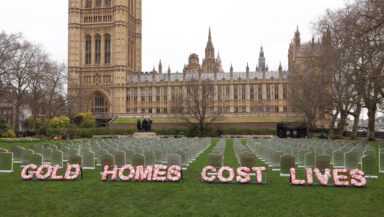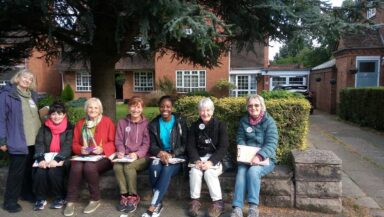COP28, the latest fortnight of global climate talks, this time hosted in Dubai, is now over.
It was attended by representatives from all the world’s governments, and quite a few global corporations. Sultan al-Jaber, head of the Abu Dhabi National Oil Company and chair of renewable energy company Masdar, led proceedings.
So what does this latest climate conference mean for the world? What’s been achieved? What’s been decided in terms of fossil fuels, moving to renewable energy – and paying for costly and unequal climate impacts?
Here’s everything you need to know.
The ‘Global Stocktake’ at COP28: calling an end to the fossil fuel era
At the core of this year’s annual climate conference was something called the “Global Stocktake”. This is what makes COP28 unique from the other COPs so far.
The Global Stocktake is intended as a thorough record of progress countries are making towards Paris Agreement targets. Countries committed at Paris in 2015 to limit global warming to 2ºC above pre-industrial levels, and ideally 1.5ºC.
The work on the stocktake began two years ago. Assessments conclude that with current efforts, the temperature will rise by up to 2.9ºC by 2100.
Discussions at COP28 have centred around the response to the Global Stocktake. The final agreement contains a number of loopholes. These include support for gas as a so-called “transition fuel” and support for technologies that are dangerous distractions, like nuclear.
But it also sends a powerful signal about the end of oil, gas and coal. The final deal requires countries to “transition away from fossil fuels in energy systems, in a just, orderly and equitable manner” by 2050 – with accelerated action this decade.
It also commits to massively scale up renewable energy and energy efficiency this decade. This is vital progress, and provides a strong statement to hold our political leaders to account on over the next year and beyond.
Climate finance and paying for loss and damage
Climate change is a very unequal problem. The countries least to blame for the crisis are feeling its impacts first and worst. The Pacific Island nations, for example, have barely added any greenhouse gas emissions to the atmosphere, but they’re most at risk from sea-level rises and storm surges.
Climate finance generally refers to the responsibility of rich historically polluting countries, like the UK, to help poorer countries adapt to climate change. It’s also money to help these countries switch their own energy systems and be compensated for climate losses and damages.
Progress on providing the promised £100 billion-a-year for the world’s developing countries to deal with the climate crisis is still slow. The promise has still not been met – despite the deadline being three years ago.
Loss and damage and finance was discussed at COP28. But the final agreement failed to recognise the duty of developed countries to fill the new loss and damage fund that was agreed at the last climate conference in Egypt.
Much more campaigning is still needed over the next year to make this happen as soon as possible.



